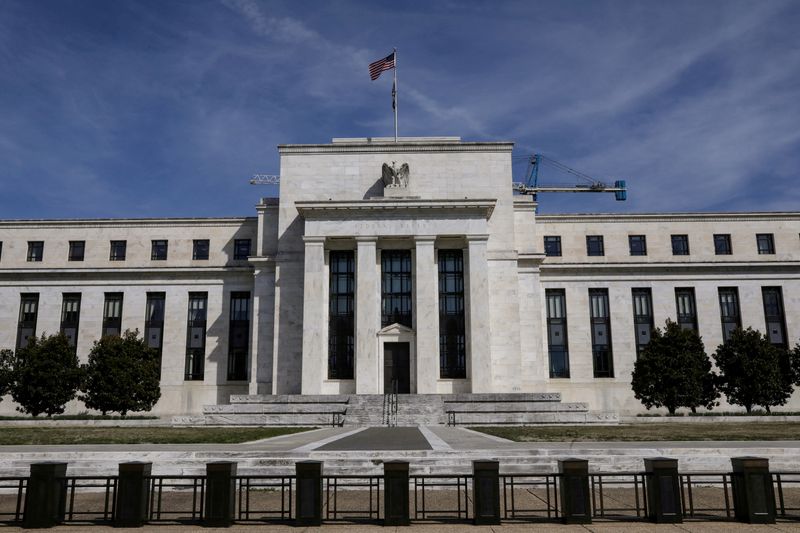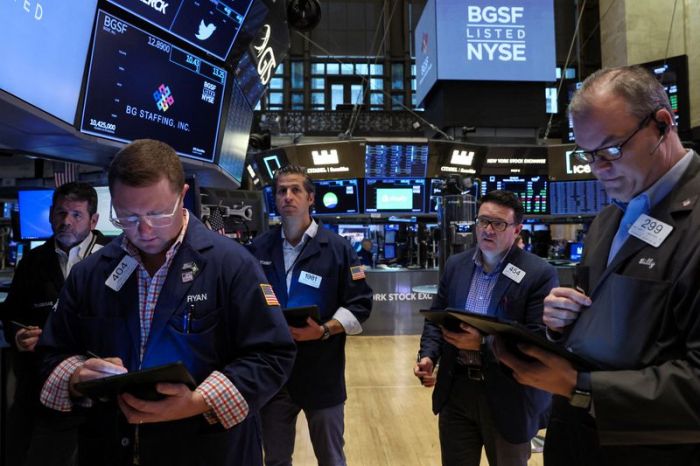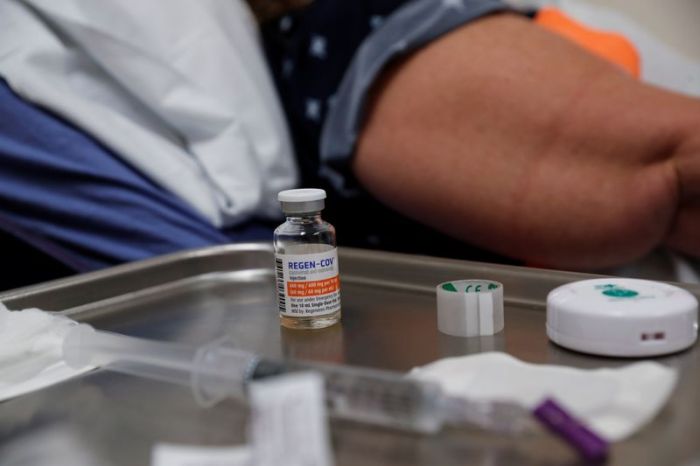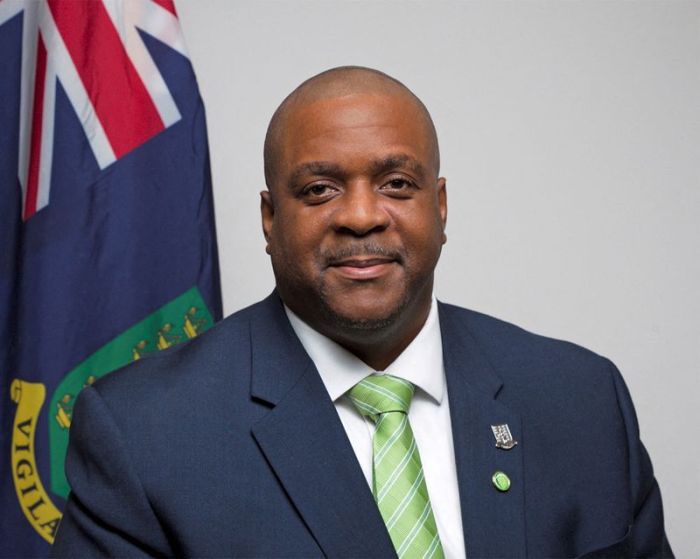WASHINGTON (Reuters) – The Federal Reserve on Wednesday raised its benchmark overnight interest rate by half a percentage point, the biggest jump in 22 years, and the U.S. central bank’s chief made an appeal to Americans struggling with high inflation to be patient while officials take the hard measures to bring it under control.
In a widely expected move, the Fed set its target federal funds rate to a range between 0.75% and 1% in a unanimous decision, and Fed Chair Jerome Powell said policymakers were ready to approve half-percentage-point rate hikes at upcoming policy meetings in June and July.
The level of specificity – effectively announcing Fed rate hikes in advance – was unusual, but reflected Powell steering a course between high inflation that requires a strong Fed response, and trying to avoid the sort of overkill that might tip the economy into recession.
In a news conference after the release of the Fed’s policy statement, Powell explicitly ruled out raising rates by three-quarters of a percentage point in a coming meeting, a comment that triggered a stock market rally.
But he also made clear the rate increases the Fed already has in mind were “not going to be pleasant” as they force Americans to pay more for home mortgages and auto loans, and possibly dent asset values.
The Fed also said it would start next month to reduce the roughly $9 trillion stash of assets accumulated during its efforts to fight the economic impact of the coronavirus pandemic as another lever to bring inflation under control.
“It’s very unpleasant,” Powell said of the impact on households of inflation, which is running about three times the Fed’s 2% target. “If you’re a normal economic person, then you probably don’t have … that much extra … to spend and it’s immediately hitting your spending on groceries … on gasoline on energy and things like that. So we understand the pain involved.”
STABLE PRICES
Powell told reporters that he and his Fed colleagues were determined to restore price stability even if that meant steps that would lead to lower business investment and household spending, and slower economic growth. The implications of inflation getting out of hand, he said, were worse.
“In the end, everyone is better off … with stable prices,” Powell said.
Still, Powell said he felt the U.S. economy is performing well, and strong enough to withstand the coming rate increases without being driven into recession or even seeing a significant rise in unemployment.
Despite a drop in gross domestic product over the first three months of this year, “household spending and business fixed investment remain strong. Job gains have been robust,” the central bank’s Federal Open Market Committee said in its policy statement.
Officials sharpened their description of the risks for elevated inflation to persist, especially with factors that have arisen since the start of the year, including the war in Ukraine and new coronavirus lockdowns in China.
“The Committee is highly attentive to inflation risks,” the Fed said in language analysts interpreted as a sign of the Fed’s commitment to push interest rates as high as needed to get inflation, and the expectations surrounding its future path, back to the 2% target.
BALANCE SHEET REDUCTION
The statement said the Fed’s balance sheet, which soared to about $9 trillion as the central bank tried to shelter the economy from the pandemic, would be allowed to decline by $47.5 billion per month in June, July and August and by up to $95 billion per month starting in September.
Policymakers did not issue fresh economic projections after this week’s meeting, but data since their last gathering in March have given no definitive sense that inflation, wage growth, or a torrid pace of hiring had begun to slow.
U.S. stock markets jumped following the announcement, extending gains after Powell poured cold water on the idea of hiking rates by three-quarters of a percentage point. The S&P 500 index closed about 3% higher, notching its biggest one-day percentage gain in nearly a year.
Yields on government bonds fell sharply in volatile trading while the dollar weakened against a basket of major trading partners’ currencies.
“This one has been well communicated and well delivered,” said Simona Mocuta, chief economist with State Street Global Advisors. “There is an awareness that they are tightening into a slowing economy and there are risks associated. For the magnitude of the move it has been very uneventful, and that is a good thing.”
(Reporting by Howard Schneider; Additional reporting by Saqib Ahmed and Chuck Mickolajczak in New York; Editing by Paul Simao)

























